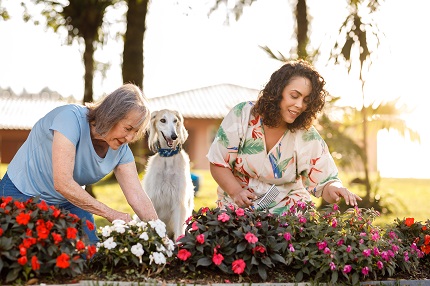A simple fall can change your loved one’s life and be the start of much more serious problems. That’s why it’s important to prevent a fall before it can happen.
1. Remove Tripping Hazards:
o Clear clutter and chords from walkways and floors
o Secure rugs and mats with double-sided tape or non-slip backing
o Remove throw rugs and mats that can slip or slide
2. Improve Lighting:
o Use bright light bulbs
o Add nightlights in hallways and bathrooms
3. Exercise and Strength train:
o Engage in exercises that improve balance, flexibility, and strength
o Consider working with a physical therapist or fitness professional
4. Review Medications:
o Talk to a doctor or pharmacist about medications that may increase fall risk
o Be aware of side effects, including dizziness or drowsiness
5. Use Assistive Devices:
o Use canes, walkers, or wheelchairs as recommended by a doctor
o Install handrails in bathrooms and stairways
o Consider using a medical alert system or wearable device
6. Check Vision:
o Schedule regular eye exams and update prescription glasses or lenses
o Consider cataract surgery or other vision correction procedures
7. Wear Supportive Shoes:
o Wear shoes with non-slip soles and ankle support
o Avoid slippers, socks, or shoes with smooth soles
8. Stay Hydrated:
o Dehydration can increase fall risk
9. Get Enough Sleep:
o Aim for 7-9 hours of sleep per night
o Sleep medications or sedatives can increase fall risk
Remember to consult with your loved one’s doctor before making any changes to an elderly adult's daily routine or environment. They can provide personalized guidance and recommendations for fall prevention.
Many older adults worry about memory loss and thinking abilities as they age. Can it be prevented? Visit the National Institute on Aging to learn latest research on cognitive health.
Use our Caregiver’s Checklist if you’re helping someone you love shop for a Medicare plan.
Get the tools you need to take care of yourself while you care for someone else.
We’re here to help! Learn more
